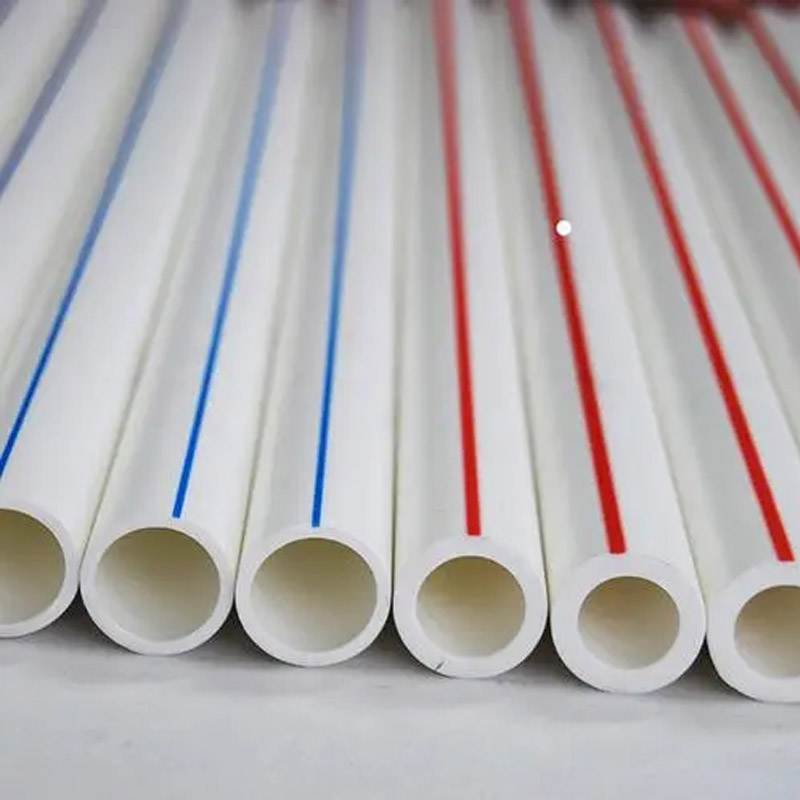Nov . 17, 2024 01:09 Back to list
32mm pvc pipe factory
The World of 32mm PVC Pipe Manufacturing A Deep Dive into Its Factory Operations
In the realm of plumbing and construction, the significance of quality materials cannot be overstated. Among these, polyvinyl chloride (PVC) pipes have emerged as a cornerstone for modern infrastructure due to their durability, versatility, and cost-effectiveness. In particular, 32mm PVC pipes are widely used in various applications ranging from irrigation systems to drainage and plumbing. This article delves into the intricacies of a factory that specializes in the production of 32mm PVC pipes.
Understanding PVC and Its Advantages
PVC, or polyvinyl chloride, is a synthetic plastic polymer that is highly regarded for its robustness and resilience. It possesses excellent resistance to corrosion, chemical abrasion, and extreme temperatures. These properties make PVC pipes suitable for a plethora of applications. Among these sizes, the 32mm pipe is favored in both residential and commercial settings, providing a balance between flow capacity and space efficiency.
The Manufacturing Process
The manufacturing of 32mm PVC pipes involves several precise steps, each critical in ensuring the final product meets industry standards. The process begins with the sourcing of high-quality PVC resin and other additives, including stabilizers and plasticizers, which enhance the pipe’s performance.
1. Compounding The first step in the factory is the compounding process, whereby the raw PVC resin is mixed with specific additives in a controlled environment. This mixture is prepared in a twin-screw extruder, which ensures the ingredients are thoroughly blended to achieve optimal properties.
2. Extrusion Following compounding, the blended material is fed into a pipe extrusion machine. The extrusion process involves melting the PVC mixture and forcing it through a specially shaped die that creates the desired 32mm diameter pipe. The extruder's temperature and pressure are carefully monitored to ensure a uniform melt and consistent product quality.
3. Cooling and Sizing Once the molten PVC is extruded, it is passed through a cooling bath where it solidifies into the pipe shape. The cooling process is critical; it determines the pipe’s dimensional stability. After cooling, the pipes are sized accurately to ensure they meet the specified diameter and wall thickness.
32mm pvc pipe factory

4. Cutting After the pipes have been formed and cooled, they are cut to the required lengths. Automated cutting machines ensure precision, reducing material wastage and ensuring consistency in the length of the final products.
5. Quality Control The final step in the manufacturing process is a stringent quality control procedure. Each batch of pipes undergoes a series of tests, including checking for dimensional accuracy, pressure resistance, and structural integrity. This ensures that only the highest quality pipes make it to the market.
Environmental Considerations
The production of PVC pipes has garnered scrutiny due to environmental concerns linked to plastic manufacturing. However, modern factories are increasingly adopting sustainable practices. Many manufacturers focus on minimizing waste by recycling scrap materials and utilizing eco-friendly additives. Furthermore, advancements in manufacturing technology have led to the production of more energy-efficient systems, reducing the carbon footprint associated with pipe production.
The Future of PVC Pipe Manufacturing
As construction and infrastructure continue to evolve, so do the demands placed on materials like PVC pipes. The trend toward smart cities and sustainable living is driving innovations in the industry. Manufacturers are exploring ways to enhance the thermal and acoustic insulation properties of PVC pipes while ensuring they remain lightweight and robust.
Moreover, the push for comprehensive waste management strategies is prompting factories to invest in recycling technologies, enabling them to reclaim and reuse PVC materials effectively.
Conclusion
The factory producing 32mm PVC pipes is at the intersection of technology and sustainability, playing a pivotal role in modern construction. As demand for durable and cost-effective materials grows, the processes within these factories will adapt to meet new challenges and opportunities. Quality, efficiency, and environmental responsibility will remain at the forefront of PVC pipe manufacturing, ensuring that this essential product continues to support infrastructure development worldwide. Whether used in homes, industries, or public utilities, 32mm PVC pipes are likely to remain a trusted choice for years to come.
-
High-Quality PVC Borehole Pipes Durable & Versatile Pipe Solutions
NewsJul.08,2025
-
High-Quality PVC Perforated Pipes for Efficient Drainage Leading Manufacturers & Factories
NewsJul.08,2025
-
High-Quality PVC Borehole Pipes Durable Pipe Solutions by Leading Manufacturer
NewsJul.08,2025
-
High-Quality PVC Borehole Pipes Reliable PVC Pipe Manufacturer Solutions
NewsJul.07,2025
-
High-Quality UPVC Drain Pipes Durable HDPE & Drain Pipe Solutions
NewsJul.07,2025
-
High-Quality Conduit Pipes & HDPE Conduit Fittings Manufacturer Reliable Factory Supply
NewsJul.06,2025

